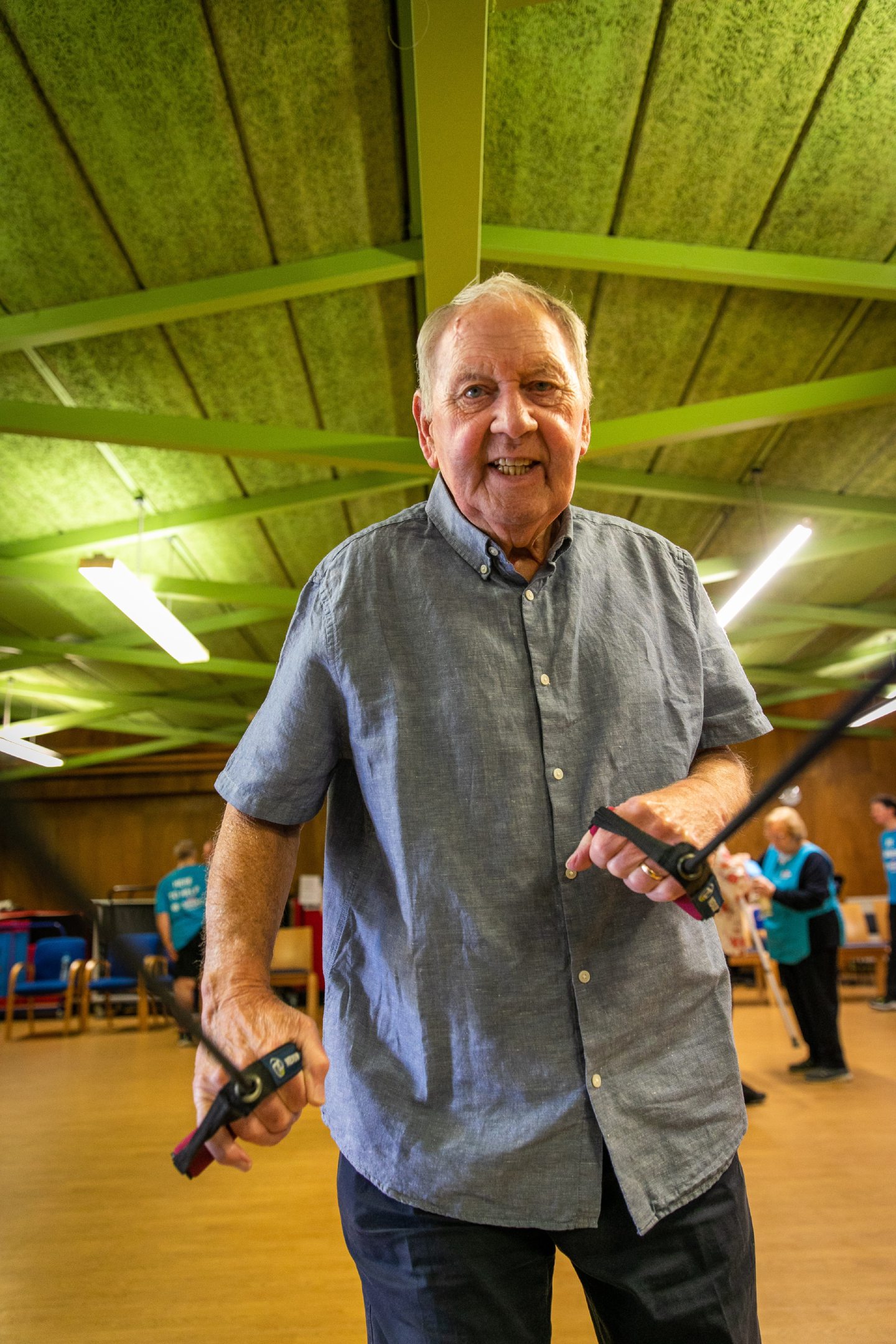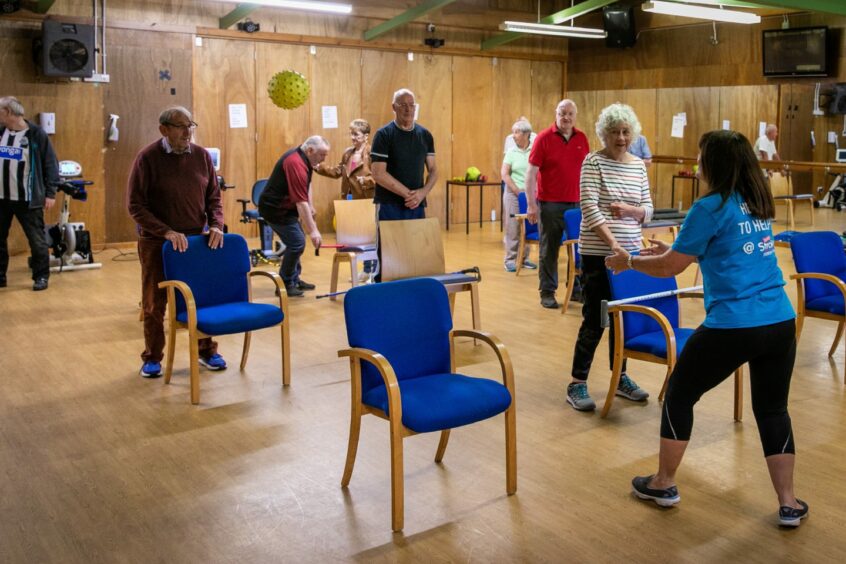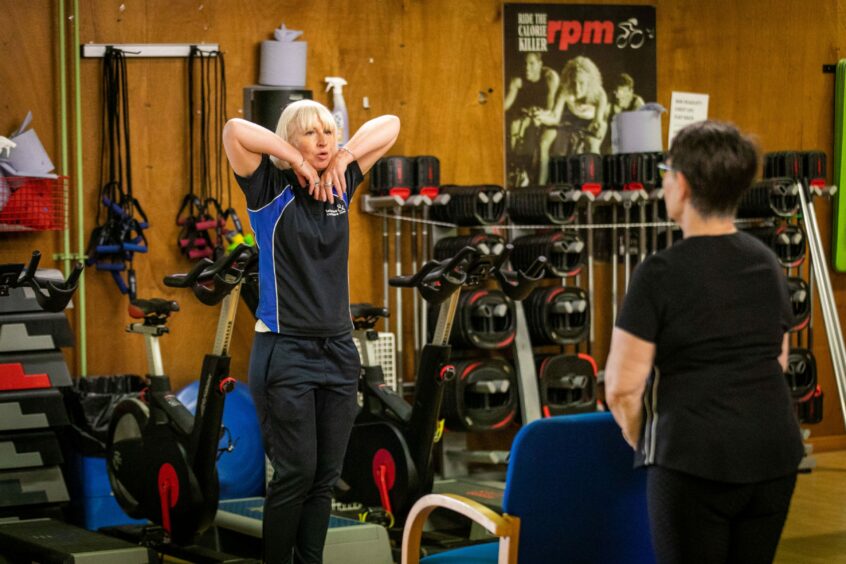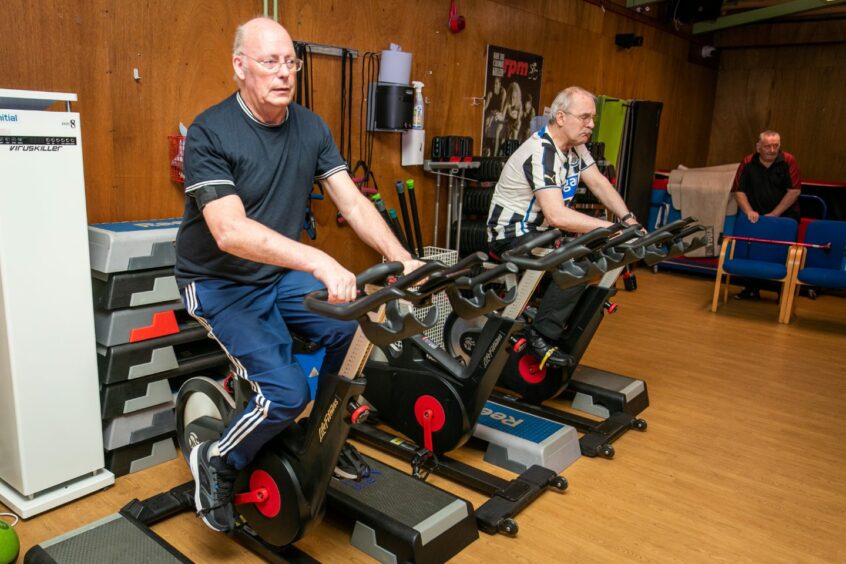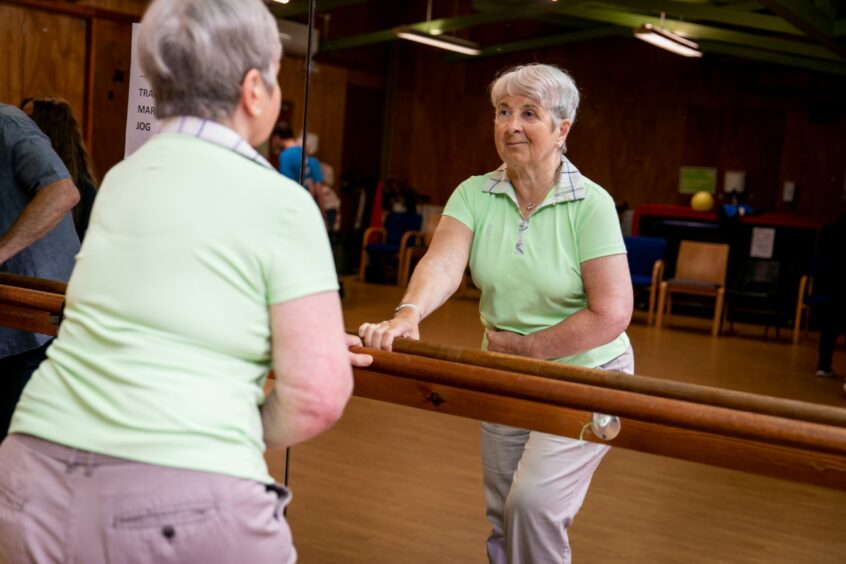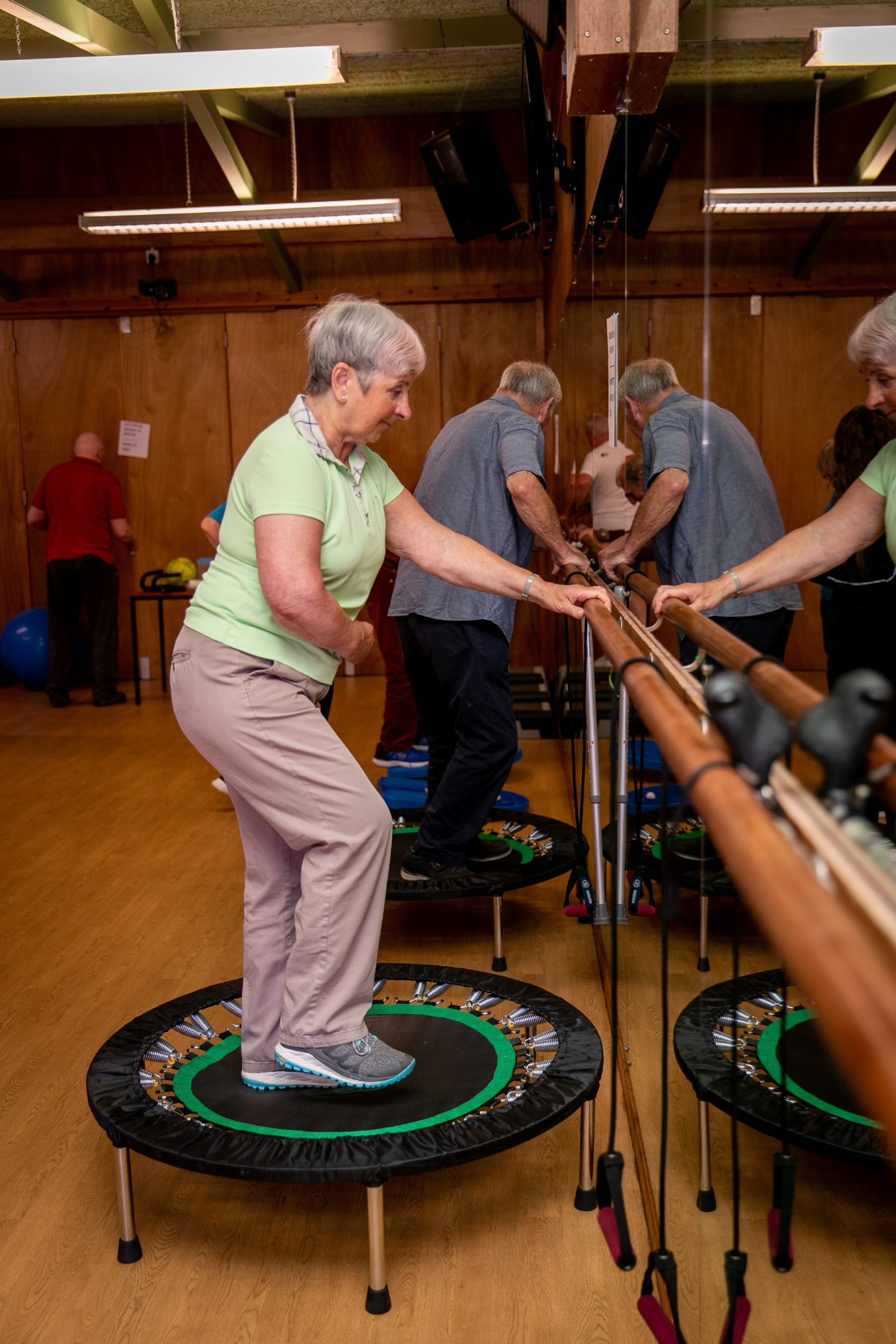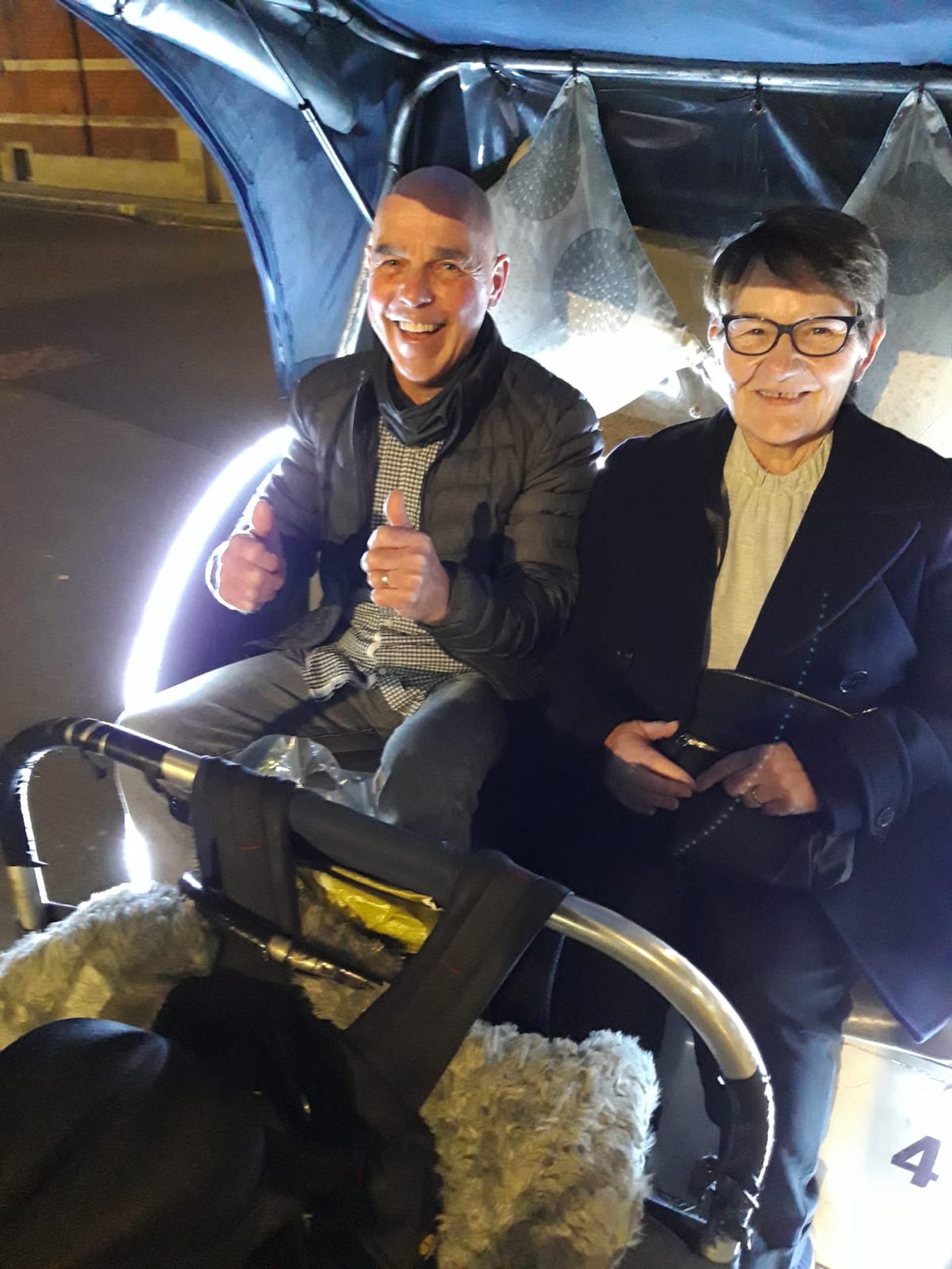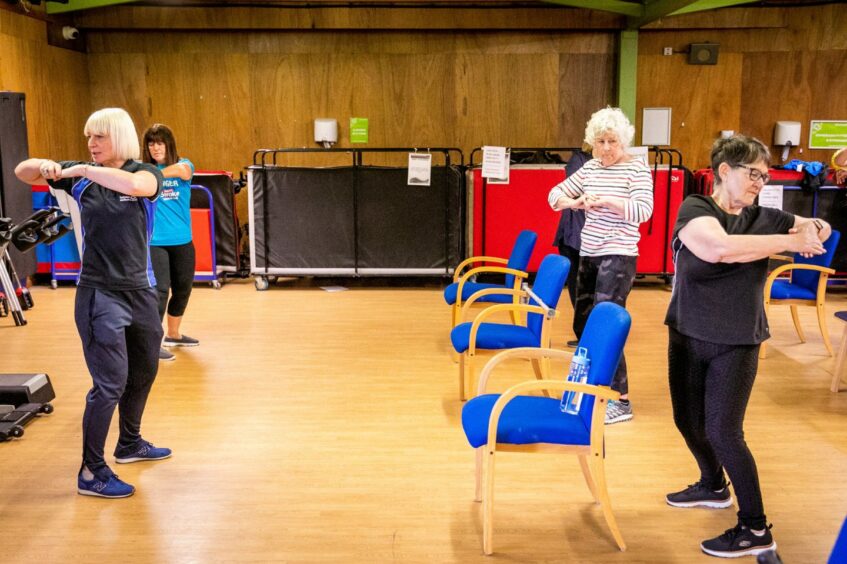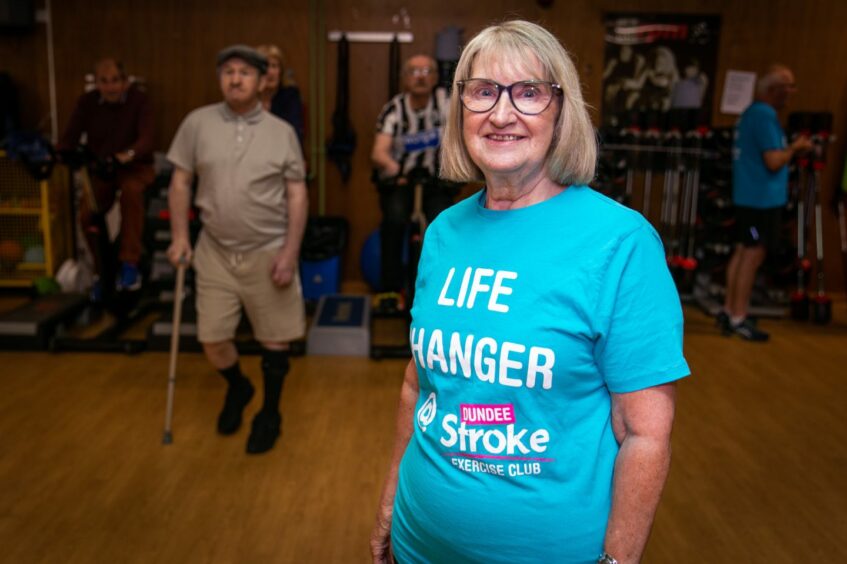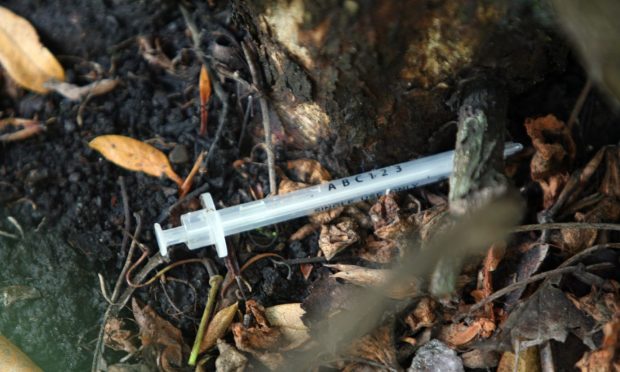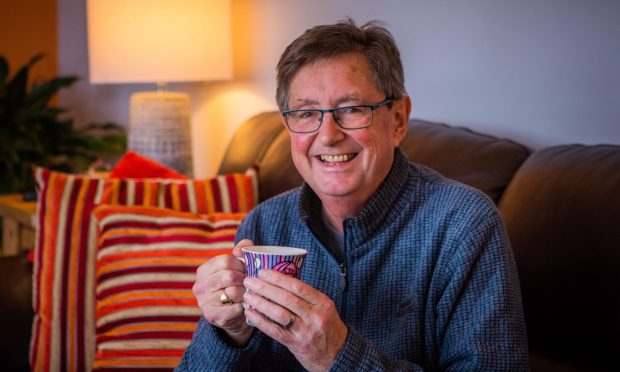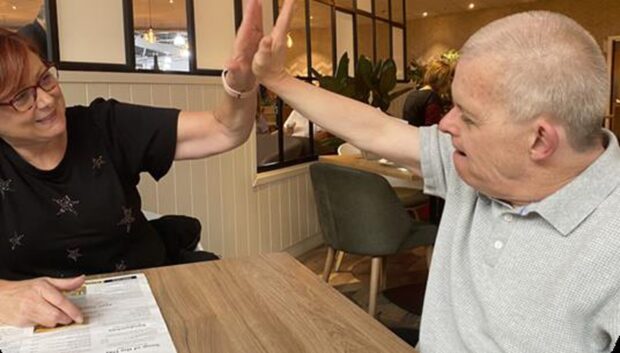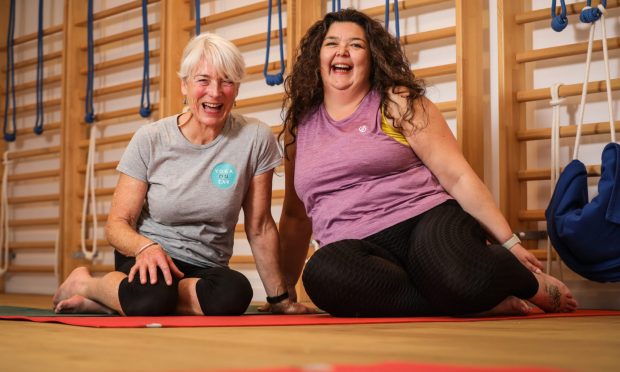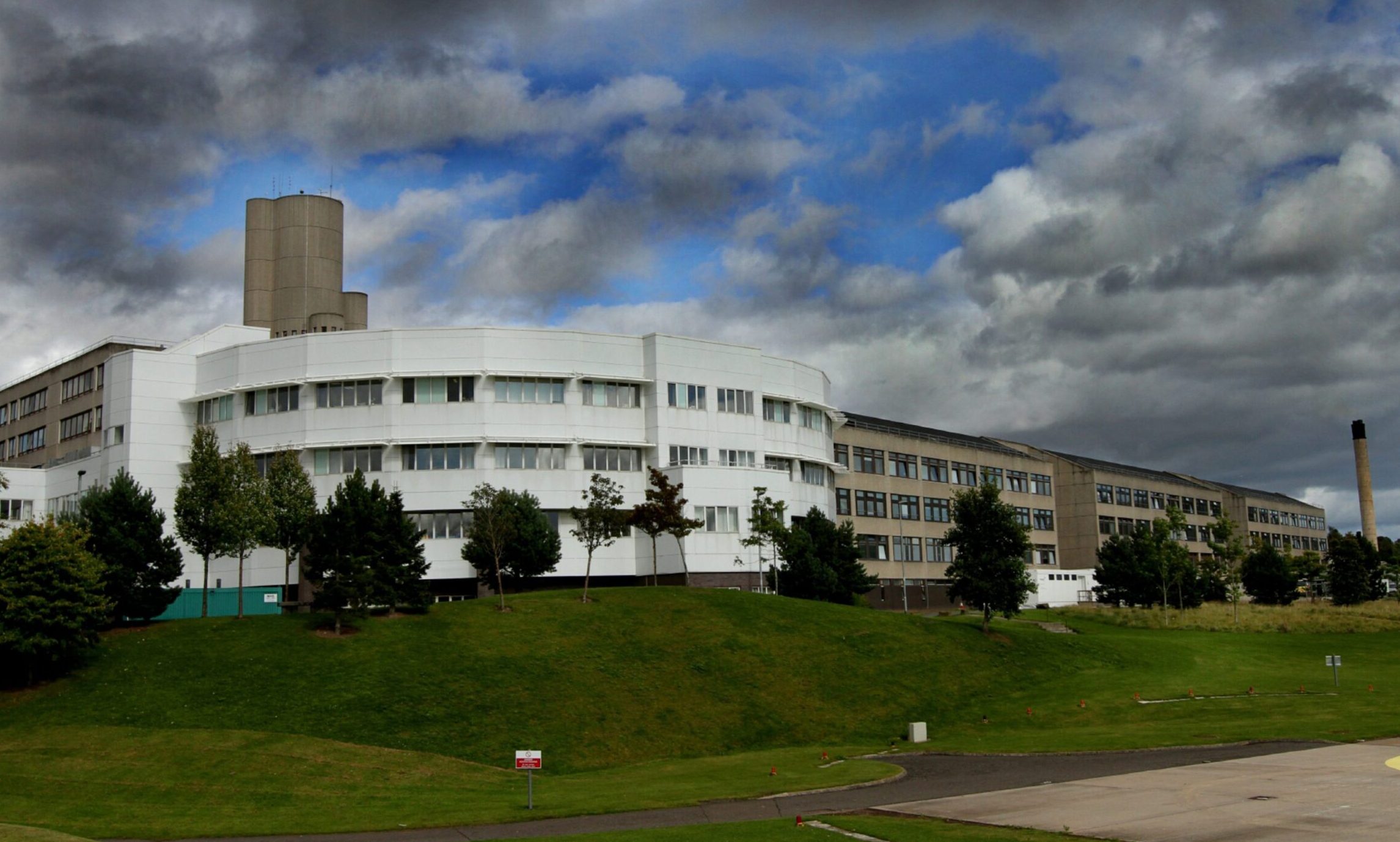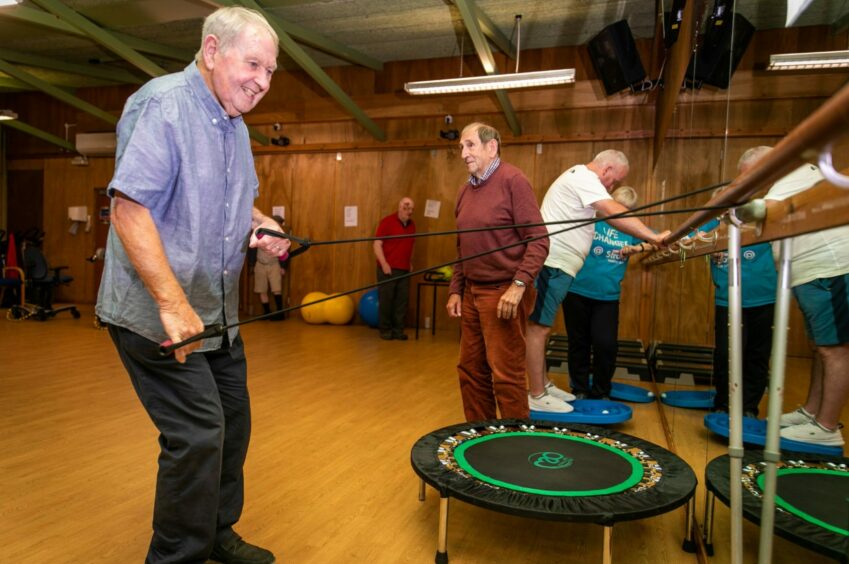
“Without Dundee Stroke Exercise Club, I would not be where I am today.”
When Allan Lowson went along to his first class at Douglas Sports Centre in Baldovie Terrace, he was in a wheelchair.
After the 70-year-old Dundonian suffered a stroke in 2017 he couldn’t walk after losing strength in his arms and legs.
Allan also experienced aphasia – a language and communication disorder which can affect someone’s ability to speak, read and write.
It is most often caused by strokes in the left side of the brain that control speech and language.
Now, six years later, the improvement in Allan’s condition is remarkable.
Not only is he able to speak much better, but he can also walk – albeit with the aid of a stick.
The grandad-of-six is a regular attender at Dundee Stroke Exercise Club, which also holds classes at Menziehill Community Hub.
And Allan is just one of a number of members at the club who experienced aphasia after having a stroke.
We went along to a class recently to speak to some of them, who revealed just how important Dundee Stroke Exercise Club has been in aiding their recovery.
What is aphasia?
New research from the Stroke Association has revealed a huge lack of public awareness and knowledge of aphasia – a language and communication disorder most commonly caused by damage to the left side of the brain after a stroke.
Its figures show nearly half Scots have never heard of aphasia, despite 350,000 people living with the condition in the UK.
And of the Scots who have heard of aphasia, nearly one in two (46%) are unclear about what it is.
The condition has come under the spotlight recently after it was revealed that Hollywood actor Bruce Willis had to retire from acting due to having aphasia.
What happened when Allan had his stroke?
Talking to me ahead of going to one of the classes, Allan explained what happened when he had his stroke in April 2017.
“I had been at a football match, Dundee v Hearts at Tynecastle, on a Saturday and was on the bus coming home.
“I was fine until I stood up and I stumbled, but I never gave it any thought.
“The next morning I felt pins and needles on one side of my body – in my arms and legs.
“The following day, I went to my GP and he advised me to go to hospital.”
Allan spent a few days in Ninewells Hospital and during that time he lost strength in his arms and legs completely.
Scans revealed he had had a blood clot in the back of his head which caused his stroke.
Learning how to walk again after stroke
He then ended up spending two months in the Royal Victoria Hospital in Dundee, learning to walk again.
Allan revealed he also struggled with his speech, due to aphasia.
“I was still able to speak, but not very well. But I got speech therapy classes at the Royal Victoria, which really helped.
“I had problems with communication for a while, but through time, it has got much better.”
It was Allan’s physio who told him about Dundee Stroke Exercise Club, which works with Leisure & Culture Dundee to deliver classes.
He started going along to classes, which are held on a Monday and Wednesday, a few months after his stroke.
It has proved to be a lifesaver for him, as he has been unable to continue with the hobbies he had before his stroke, including gardening.
“Without the club I would not be where I am today.
“At the class we do circuit training and use equipment like bikes and steps to build up strength again in your arms and legs.
“As well as improving my mobility, it has been great to meet other people who have been through a similar experience.”
Visiting Dundee Stroke Exercise Club
Twice a week Allan joins a friendly group of fellow stroke survivors at the club in Douglas Sports Centre, which is run by volunteers.
In the spacious sports hall, they take part in a physiotherapy class designed to get them moving.
I headed along to one of the classes and watched as the 18 members followed instructor Margaret Glancey’s lead in a warm up.
This involves them doing light movements to make sure their bodies are warmed up and ready to use the equipment set up around the hall.
The twice-weekly sessions are much like other fitness classes, but are tailored for people who have suffered a stroke.
Losing the ability to speak
After the warm up was over, I headed over to chat to John McConnell, 68, from Broughty Ferry, who started off by pedalling on one of the stationary bikes.
Like Allan, he also suffered from aphasia, after having a stroke three years ago.
John, who still struggles at times to find the right words, explained: “I lost movement in my arms and my legs and lost the ability to speak.
“It started coming back – my arms and legs first – and then speech later on.
“With the aphasia, I could understand what people were saying to me, but I struggled to get the words out.
“It was very difficult.”
Support from members of Dundee Stroke Exercise Club
The retired bus company depot manager attends Dundee Stroke Exercise Club twice a week.
“The club has been tremendous,” he said.
“The exercises are really good and as a result my walking has improved.
“My speech is an awful lot better too.
“It has been good to have support from other people in the class.”
Having a shot on the trampoline is June McDermid, 77, from Thornton, Fife.
June had her stroke three years ago.
She told me she just woke up one morning and couldn’t speak or move.
“I had no movement on my right side and I couldn’t speak for three days.
“My speech did come back but I still struggle with some words.”
The retired auxiliary nurse attends the club every week in Dundee because there isn’t a class like it in Fife.
“Even though I am not from Dundee, I was told if I could make it through to the class I would be welcome.”
“It’s still hard to move my right arm but it is getting better and the movement in my leg has improved.
“It has been really rewarding coming to the club. I wish there was something like it in Fife.”
After the class had finished, I chatted to Margaret Smith, 69, and her husband, John, who live in Dundee.
She is the one participant who has probably been affected most by aphasia, after having a stroke in March 2020.
How aphasia has affected Margaret
John told me that because of the condition, she now struggles to read, write, tell the time and her short-term memory has also been affected.
Margaret found out about the stroke club through the speech and language therapy department at the Royal Victoria Hospital, which gave her support.
The retired nurse enjoys doing the exercises each week with the other members.
Raising awareness of aphasia
John, 69, feels it is important to raise awareness of aphasia, as there are a lot of people who aren’t aware of the condition.
“I would say to someone that Margaret has aphasia and they would say to me, what is aphasia?
“I didn’t realise, until Margaret had the stroke, what aphasia was and because it isn’t impacting on her physically, you can’t see it.
“So you don’t understand what she goes through.
“For example, she can read, although not not very well and it’s the same with writing.
“And Margaret can speak fine, she just struggles to sometimes find the words.
“I keep her right with certain things, like doctor’s appointments, but she can do most things herself, she is very independent.”
He added: “Margaret loves coming to the club and having the support of the other members.
“I don’t think a lot of people are aware of it so its good to be able to promote Dundee Stroke Exercise Club because it really helps people like Margaret.”
Chairperson Margaret Mitchell MBE set up the club 13 years ago when she worked as a stroke nurse at NHS Tayside.
She said: “The benefits are amazing.
“You see people coming into the class and they are in tears, really apprehensive and not sure if they should be there.
“But you soon see the difference when they start interacting with the other members.
“The classes not only help people physically, it also helps them socially and emotionally.
‘Working with stroke survivors is the best reward’
“At the classes they have someone to speak to and they support each other.”
Margaret, who achieved an award in professional excellence from the Stroke Association in 2015 for setting up the classes, added: “Working with stroke survivors is amazing, it is the best reward.
“When you see them coming in and improving, it makes everything we do really worthwhile.”
